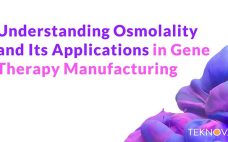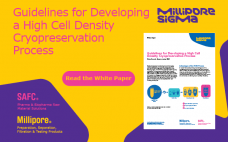Osmolality testing provides a versatile measure of solute concentration that is an important consideration in the manufacture of gene therapies. This white paper discusses how monitoring osmolality of media during upstream viral vector production and reagents during downstream purification processes can influence quality of the final product. The dependence of multiple biological processes on osmolality, coupled with the usefulness of its measurement in vector quality control, means that osmolality testing is a powerful method to support a high yield of…
Wednesday, October 6, 2021 Daily Archives
Guidelines for Developing a High Cell Density Cryopreservation Process
Biopharmaceutical manufacturers are leveraging several approaches to intensify processes with a goal of improving efficiency and productivity and reducing costs — all while ensuring the highest quality standards. The upstream workflow offers several opportunities to apply next generation technologies and methods to achieve these important goals. In this white paper we discuss integration of high cell density cryopreservation (HCDC) in the seed train and explore key considerations for developing a cryopreservation process including choice of cryoprotectant and freezing techniques.
CDMO BioCina rises out of Pfizer’s Australian ashes
Bridgewest Group has launched BioCina, a microbial therapy and mRNA-based manufacturer operating from a former Pfizer facility in Adelaide, Australia. Last year, Bridgewest Australia Holdings, a subsidiary of private investment firm Bridgewest Group, entered the biologics production space by inking a deal to acquire a Pfizer plant in Adelaide, Australia. This week, the company has completed an expansion program and relaunched the 60,000 square-foot site under its contract development and manufacturing organization (CDMO) banner BioCina. The Adelaide site now includes…
MilliporeSigma says viscosity tech overcomes manufacturing challenges
MilliporeSigma has launched a Viscosity Reduction Excipient Platform, which it says helps tackle production and formulation issues associated with highly concentrated protein solutions. According to Merck’s Life Science business MilliporeSigma, the Viscosity Reduction Platform can address specific needs of different protein-based therapeutics through the combination of amino acids and anionic components. “MilliporeSigma’s new Viscosity Reduction Excipient Platform reduces interactions between proteins (including antibodies) that make the product too thick to pass through an injection needle,” Matthias Bucerius, head of actives and formulation at MilliporeSigma told us. “The platform does…




